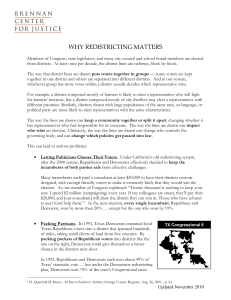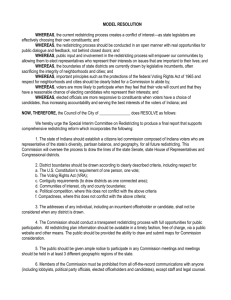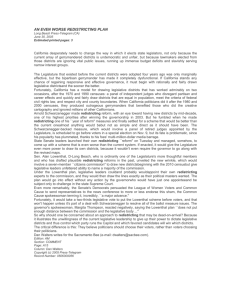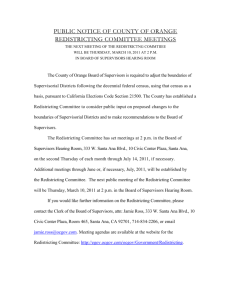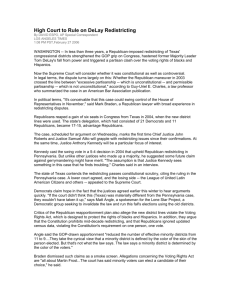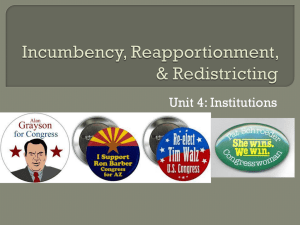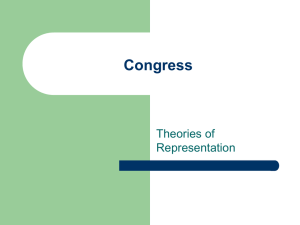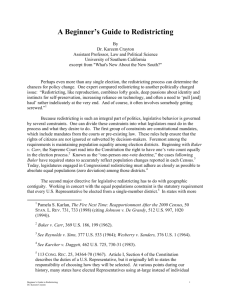Don - Statewide Database
advertisement
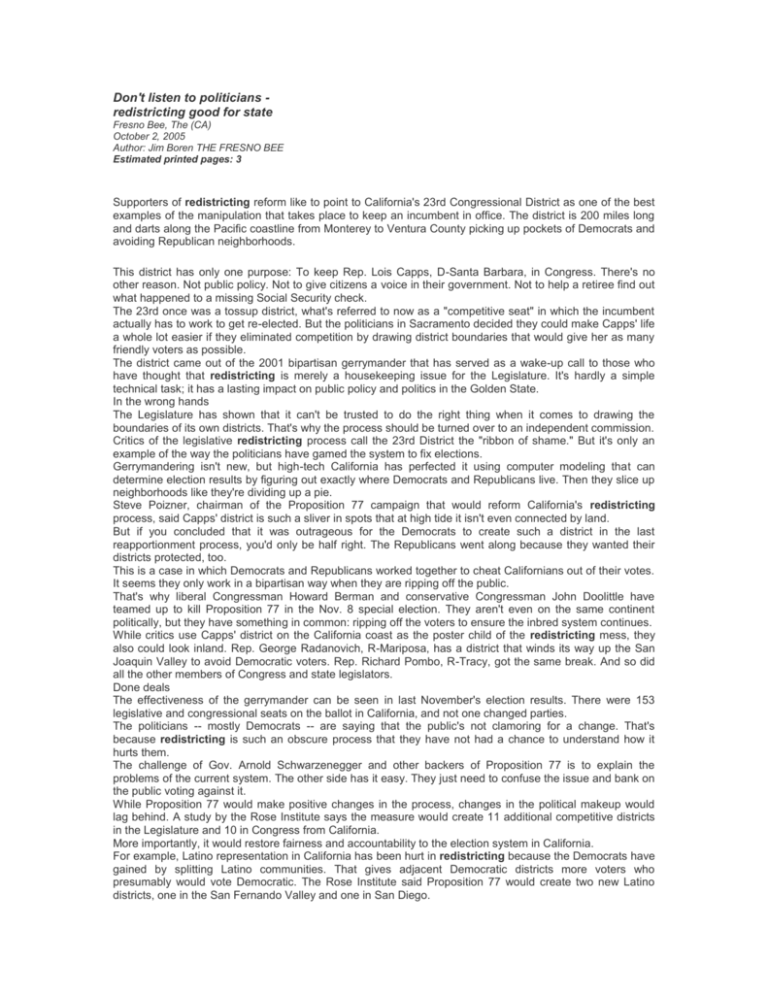
Don't listen to politicians redistricting good for state Fresno Bee, The (CA) October 2, 2005 Author: Jim Boren THE FRESNO BEE Estimated printed pages: 3 Supporters of redistricting reform like to point to California's 23rd Congressional District as one of the best examples of the manipulation that takes place to keep an incumbent in office. The district is 200 miles long and darts along the Pacific coastline from Monterey to Ventura County picking up pockets of Democrats and avoiding Republican neighborhoods. This district has only one purpose: To keep Rep. Lois Capps, D-Santa Barbara, in Congress. There's no other reason. Not public policy. Not to give citizens a voice in their government. Not to help a retiree find out what happened to a missing Social Security check. The 23rd once was a tossup district, what's referred to now as a "competitive seat" in which the incumbent actually has to work to get re-elected. But the politicians in Sacramento decided they could make Capps' life a whole lot easier if they eliminated competition by drawing district boundaries that would give her as many friendly voters as possible. The district came out of the 2001 bipartisan gerrymander that has served as a wake-up call to those who have thought that redistricting is merely a housekeeping issue for the Legislature. It's hardly a simple technical task; it has a lasting impact on public policy and politics in the Golden State. In the wrong hands The Legislature has shown that it can't be trusted to do the right thing when it comes to drawing the boundaries of its own districts. That's why the process should be turned over to an independent commission. Critics of the legislative redistricting process call the 23rd District the "ribbon of shame." But it's only an example of the way the politicians have gamed the system to fix elections. Gerrymandering isn't new, but high-tech California has perfected it using computer modeling that can determine election results by figuring out exactly where Democrats and Republicans live. Then they slice up neighborhoods like they're dividing up a pie. Steve Poizner, chairman of the Proposition 77 campaign that would reform California's redistricting process, said Capps' district is such a sliver in spots that at high tide it isn't even connected by land. But if you concluded that it was outrageous for the Democrats to create such a district in the last reapportionment process, you'd only be half right. The Republicans went along because they wanted their districts protected, too. This is a case in which Democrats and Republicans worked together to cheat Californians out of their votes. It seems they only work in a bipartisan way when they are ripping off the public. That's why liberal Congressman Howard Berman and conservative Congressman John Doolittle have teamed up to kill Proposition 77 in the Nov. 8 special election. They aren't even on the same continent politically, but they have something in common: ripping off the voters to ensure the inbred system continues. While critics use Capps' district on the California coast as the poster child of the redistricting mess, they also could look inland. Rep. George Radanovich, R-Mariposa, has a district that winds its way up the San Joaquin Valley to avoid Democratic voters. Rep. Richard Pombo, R-Tracy, got the same break. And so did all the other members of Congress and state legislators. Done deals The effectiveness of the gerrymander can be seen in last November's election results. There were 153 legislative and congressional seats on the ballot in California, and not one changed parties. The politicians -- mostly Democrats -- are saying that the public's not clamoring for a change. That's because redistricting is such an obscure process that they have not had a chance to understand how it hurts them. The challenge of Gov. Arnold Schwarzenegger and other backers of Proposition 77 is to explain the problems of the current system. The other side has it easy. They just need to confuse the issue and bank on the public voting against it. While Proposition 77 would make positive changes in the process, changes in the political makeup would lag behind. A study by the Rose Institute says the measure would create 11 additional competitive districts in the Legislature and 10 in Congress from California. More importantly, it would restore fairness and accountability to the election system in California. For example, Latino representation in California has been hurt in redistricting because the Democrats have gained by splitting Latino communities. That gives adjacent Democratic districts more voters who presumably would vote Democratic. The Rose Institute said Proposition 77 would create two new Latino districts, one in the San Fernando Valley and one in San Diego. Over the next several weeks, voters will hear a lot of misinformation about Proposition 77. When they do, they should picture California's 23rd Congressional District. It's a symbol of arrogant politicians thumbing their noses at voters, and one more reason to take redistricting out of the Legislature's hands. Jim Boren is The Fresno Bee's editorial page editor. His column appears Sunday. E-mail him at jboren@fresnobee.com or write him at 1626 E St., Fresno 93786. Memo: JIM BOREN Edition: FINAL Section: VISION Page: E3 Index Terms: 10/3/2005 Copyright (c) 2005 The Fresno Bee Record Number: 0415931950
